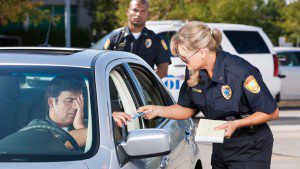Law Enforcement Encounters
One concern that many concealed carry permit holders share is what to do when interacting with a law enforcement officer while in possession of their firearm. I agree that it is a situation that makes many people nervous or uncomfortable, and knowing exactly what you are going to do if you are ever in that situation can make it much easier for you, so let’s take a look at this, keeping in mind that most law enforcement officers are just regular people, like you and me, who want to make it home after their shift is over.
Before we dive in to what you should and shouldn’t do when interacting with an officer, there is a very important thought to consider. You don’t know what the officer’s previous call was; it could have been a simple speeding ticket, maybe they just arrested someone for attempting to run them over in a “routine” traffic stop, or maybe they just had a gun drawn on them and are hyper-alert to anything that might remotely resemble an act of aggression. Perhaps a call just went out for a crime involving a gun and a car that matches the description of your car. I don’t mention all of these possibilities for the pleasure of making you nervous, but it is important to remember that you are not the only party in the interaction who might be anxious. Because of this, always make smooth, deliberate motions when retrieving anything the officer asks for, and I actually narrate what I am about to do to avoid any confusion or misinterpretation.
 Some states (AK, AR, LA, MI, NC, NE, OH, OK, SC, TX) have laws that specifically require the citizen to inform the law enforcement officer if they are carrying a firearm (whether open or concealed). This does NOT mean that as soon as you see a law enforcement officer you should yell, “I have a gun!” and try to show them where it is. Any aggressive action or statement like this could be taken as a threat and take the encounter exactly where you didn’t want it to go. My recommendation is to begin the conversation with something along the lines of: “I have a valid concealed carry permit from xxxx state, I have my firearm on me. How would you like to handle this?” It is very likely that at this point the police officer will ask to see the referenced permit, and as you reach for it, there are a couple of things to consider. First of all, the law enforcement officer now knows you have a gun, but does not know if you are a law-abiding citizen, so I would avoid any rapid, aggressive movements of any kind.
Some states (AK, AR, LA, MI, NC, NE, OH, OK, SC, TX) have laws that specifically require the citizen to inform the law enforcement officer if they are carrying a firearm (whether open or concealed). This does NOT mean that as soon as you see a law enforcement officer you should yell, “I have a gun!” and try to show them where it is. Any aggressive action or statement like this could be taken as a threat and take the encounter exactly where you didn’t want it to go. My recommendation is to begin the conversation with something along the lines of: “I have a valid concealed carry permit from xxxx state, I have my firearm on me. How would you like to handle this?” It is very likely that at this point the police officer will ask to see the referenced permit, and as you reach for it, there are a couple of things to consider. First of all, the law enforcement officer now knows you have a gun, but does not know if you are a law-abiding citizen, so I would avoid any rapid, aggressive movements of any kind.
The other thing to keep in mind is that you must always keep your concealed carry permit on your person, along with your photo ID, and you should probably have them somewhere relatively accessible, but nowhere near your firearm. Some situations could get tricky if not thought through. For example, many belly-band holsters also have a little pocket for your ID’s which is very practical when you’re going jogging, but not so much when you have to reach for your permit or driver’s license in front of an officer. In that case you could let them know that the firearm and ID’s are both in the holster, and explain to them that you are going to remove the holster (with everything still in it) so they can watch you remove only the ID’s or do it themselves.
Another common situation that could get complicated is if you put your firearm in the glove box for any reason. Say you get pulled over, inform them that you are a concealed carry permit holder who has their firearm with them, and you show them your permit and driver’s license. Good so far, right? But what is going to happen when they ask to see your DMV registration and you reach in your glove box, only to have a gun fall out? Is it possible that the law enforcement officer might assume that you are reaching for a gun, and draw his own? Avoiding situations like this is not impossible or even complicated, as long as you put a little bit of thought into where your firearm and ID’s are in relation to anything that you might have to show or hand an officer.
Now, let’s talk about the laws in Virginia. In the state of Virginia you are recommended to, but not required to inform a law enforcement officer that you are armed. The only exception to this is if you are asked, in which case you must answer honestly. That may seem like a random question for an officer to ask, but in Virginia, your DMV record and your concealed carry permit record are linked in the police database, so if the car you are driving is registered to you, the officer will be able to see that you have a concealed handgun permit. At that point, the officer will probably assume two things: you have a gun, and you are probably a law-abiding citizen because you had to pass a background check within the last five years, and took the time to file for your permit in order to do things the right way. The first assumption I mentioned is crucial, because if the officer is assuming that you are armed, you may want to rethink the habit of reaching around and fumbling for your registration as the officer approaches your window, because they don’t know what it is you’re reaching for! So, it would be wiser to keep your hands on the steering wheel, showing the officer that you are willing, cooperative, and not aggressive, until instructed to do otherwise. If it’s dark out, I also recommend turning the dome light on, as this shows the officer that you are not trying to hide or do anything. Having said all of this, I suggest informing the law enforcement officer that you are armed, whether asked or not. If you are not comfortable verbally informing the officer, but want to do so, you can hand them your concealed handgun permit along with your driver’s license.
It is also important to keep in mind that you while you have responsibilities in this interaction, you also have rights. For example, it is your right to refuse to consent to a search of yourself, your car, or your home. Unless the law enforcement officer has a “reasonable” cause or suspicion, they cannot search any of the above without consent or a warrant, and you informing them that you LEGALLY have a gun in your possession does not fall under that category. Like I mentioned earlier, most law enforcement officers are regular, gun-friendly people, like you and me, but there are a few that give the rest a not-so-good name (like in any other profession). What if they want you to step out of your vehicle and hand them your firearm? I recommend you cooperate within reason and within what you are personally comfortable with. However, I would personally never reach for my firearm in front of an officer, even if asked to.
In this situation, after stepping out of the car, you have a couple of options. You can hand them your firearm (although I advise against this), you can let them retrieve the gun out of your holster, or you can refuse to let them take possession of your firearm. If things escalate, you can ask for the guidance of an attorney and remain silent, at which point you may be detained for questioning once a lawyer is present. Even if you feel that your rights are violated, always stay calm and compliant; let a lawyer fight it later.
In spite of all the fancy talk in this article, interaction with law enforcement officers is really quite simple. The most important things to keep in mind are: stay calm, always be compliant and courteous, avoid any abrupt or aggressive movements, keep your ID’s somewhere accessible (and away from your firearm), and know what your state law says about interaction with a law enforcement officer. If you have any questions, ask a law enforcement officer; they will be happy to help a law-abiding citizen do things the right way.
